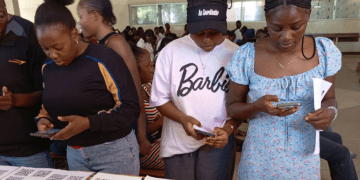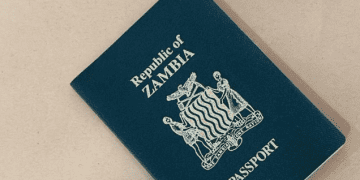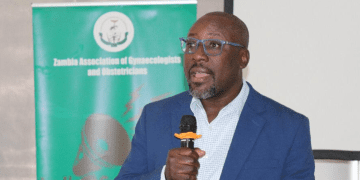By Guest Writer
In a world where politics and religion often collide, understanding and respect seem to be elusive goals. The interplay between these powerful forces has sparked passionate debates, shaped civilizations, and even led to war. But is it possible for politics and religion to coexist harmoniously? In this article, we delve into the delicate dance between politics and religion, with the aim of fostering understanding and empathy.
Exploring the historical context of this relationship, we uncover how political ideologies and religious beliefs can both inspire and divide. We examine the impact of religious institutions on political decision-making and the role of religious leaders in shaping public opinion. Additionally, we analyze the challenges of navigating religious freedom and its intersection with political realities.
Through a balanced and nuanced approach, we aim to shed light on the complexities of this enduring dance. By understanding the historical roots, acknowledging different perspectives, and finding common ground, we hope to pave the way towards a more inclusive and tolerant society.
Join us as we embark on this intellectual exploration, seeking to unravel the intricate connections between politics and religion, and ultimately striving towards greater understanding and harmony.
The relationship between politics and religion is complex and multifaceted. Both politics and religion involve deeply held beliefs, values, and ideologies that shape individuals and societies. At their core, politics deals with the governance and organization of society, while religion addresses questions of meaning, purpose, and morality. It is no wonder that these two domains often intersect and influence one another.
Throughout history, political leaders and religious institutions have wielded significant influence over their respective domains. Political ideologies have been inspired and justified by religious beliefs, and religious institutions have played a crucial role in shaping political decision-making. In ancient civilizations, rulers often claimed divine authority, using religion as a means to legitimize their power. The intertwining of politics and religion can be seen in various historical examples, such as the Holy Roman Empire, where the Pope held significant political influence.
Understanding the relationship between politics and religion is essential for several reasons. First, it allows us to comprehend the motivations and actions of individuals and groups who are driven by their religious beliefs. By recognizing the influence of religious convictions on political decision-making, we can better navigate the complexities of political landscapes and anticipate the potential impacts of religious ideologies on policy.
Second, understanding this relationship helps us appreciate the diversity of perspectives and beliefs within our societies. Politics and religion often shape personal identity and deeply-held values. By acknowledging and respecting these differences, we can foster a more inclusive and tolerant society that values religious freedom and political pluralism.
Throughout history, religion has played a significant role in shaping political events and ideologies. One notable example is the Protestant Reformation, which not only sparked a religious revolution but also had profound political implications. The Reformation challenged the authority of the Catholic Church and led to the rise of Protestant denominations, resulting in political conflicts and the restructuring of power dynamics in Europe.
Another example is the role of religion in the American Civil Rights Movement. Religious leaders such as Martin Luther King Jr., rooted in their faith, became powerful advocates for racial equality and social justice. Their religious convictions mobilized communities and provided a moral framework for political action, ultimately leading to significant societal change.
In contemporary times, politics continues to impact religion in various ways. One such example is the relationship between the state and religious institutions. In some countries, governments exert control over religious practices and institutions, shaping the religious landscape and influencing the beliefs and behaviors of individuals. This can lead to tensions between the political authorities and religious communities, as different values and priorities clash,
Another current example is the intersection of religion and political discourse. Religious beliefs and values often become entangled with political ideologies, shaping public opinion and policy debates. Issues such as abortion, same-sex marriage, and religious freedom become battlegrounds where religious convictions clash with political agendas.
Navigating the delicate balance between politics and religion is not without its challenges. One major hurdle is the potential for religious beliefs to be manipulated and exploited for political gain. Political leaders throughout history have used religion as a tool to rally support, justify policies, and mobilize voters. This manipulation can lead to polarization and division, as religious differences are exploited for political purposes.
Another challenge is the tension between religious freedom and political realities. While religious freedom is a fundamental human right, there are instances where religious practices or beliefs may conflict with laws or policies enacted for the greater good. Finding a balance between protecting religious freedom and ensuring the well-being of society as a whole is a complex task that requires careful consideration and dialogue.
Despite the challenges, there are strategies that can help foster understanding and respectful dialogue between politics and religion. First and foremost, education plays a vital role in promoting religious and political literacy. By providing individuals with a comprehensive understanding of different religious traditions and political ideologies, we can cultivate empathy and bridge divides.
Additionally, promoting tolerance and inclusivity in political and religious discourse is essential. Encouraging open-mindedness, actively listening to different perspectives, and engaging in respectful dialogue can help break down barriers and foster understanding. It is crucial to create spaces where individuals from diverse religious and political backgrounds can come together to learn from one another and find common ground.
Empathy and perspective-taking are crucial tools for bridging divides between politics and religion. By putting ourselves in the shoes of others and seeking to understand their motivations and experiences, we can develop a deeper appreciation for their beliefs and values. This empathy can foster mutual respect and create opportunities for productive dialogue that transcends differences.
It is also important to acknowledge that individuals’ religious beliefs and political identities are deeply intertwined with their personal experiences and sense of self. Recognizing the complexity and depth of these connections can help us approach discussions with sensitivity and compassion.
In the modern era, the concept of religious freedom has become a cornerstone of democratic societies. The right to practice one’s religion without interference from the state is enshrined in many constitutions and international declarations of human rights. However, the tension between religious freedom and political realities often comes to the forefront, as governments grapple with issues such as religious extremism, cultural clashes, and the protection of minority rights.
One of the challenges in navigating the delicate dance between politics and religion is striking a balance between respecting religious beliefs and safeguarding the principles of secular governance. In diverse societies, where multiple religions coexist, it becomes essential to ensure equal treatment and protection for all faith communities. This requires crafting inclusive policies, promoting interfaith dialogue, and fostering a spirit of tolerance and understanding.
Another aspect to consider is the impact of religious beliefs on political decision-making. While religious teachings can provide moral guidance, they may also clash with secular values and principles. Issues such as reproductive rights, LGBTQ+ rights, and the role of women in society often become flashpoints, with religious perspectives influencing political debates and policy outcomes. Striking a balance between religious freedom and individual rights becomes a delicate task for policymakers.
In order to achieve a harmonious coexistence between politics and religion, it is essential to promote tolerance and inclusivity in both political and religious discourse. This requires creating spaces for dialogue, where individuals with different beliefs can come together to engage in respectful conversations.
Political leaders can set the tone by promoting inclusive policies that protect the rights of all citizens, regardless of their religious affiliations. By championing religious freedom and ensuring equal treatment under the law, governments can send a powerful message of inclusivity and respect. Similarly, religious leaders can play a crucial role in fostering understanding and empathy by promoting dialogue and condemning hate speech or incitement to violence.
Civil society organizations, including interfaith groups and human rights organizations, also have a significant role to play in promoting tolerance and inclusivity. Through collaborative initiatives, they can facilitate dialogue between different religious communities and advocate for policies that uphold human rights and protect religious minorities. By working together, these organizations can amplify their voices and create a more inclusive and tolerant society.
In conclusion, the delicate dance between politics and religion requires a nuanced understanding of their historical context, the challenges posed by religious freedom, and the role of education in promoting empathy and critical thinking. By fostering understanding, promoting dialogue, and championing inclusivity, we can strive towards a society where politics and religion coexist harmoniously, paving the way for a more peaceful and tolerant world. Let us embrace the complexities of this dance and work towards a future of understanding and respect for all.
Disclaimer: The views and opinions expressed in this article are those of the authors and do not necessarily reflect the official policy of Melo Media Zambia.
© 2024 copyright all reserved Melo Media Zambia | Email: editor@melomediazambia.com | www.melomediazambia.com | WhatsApp Only: +260969535044

















